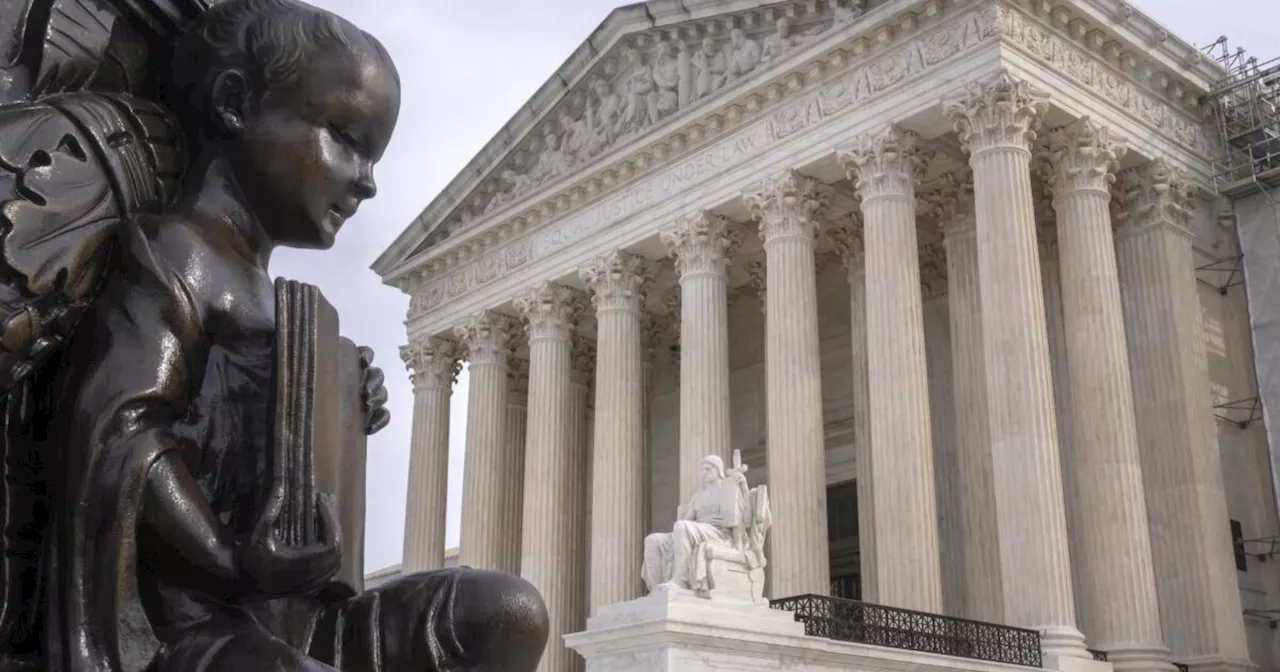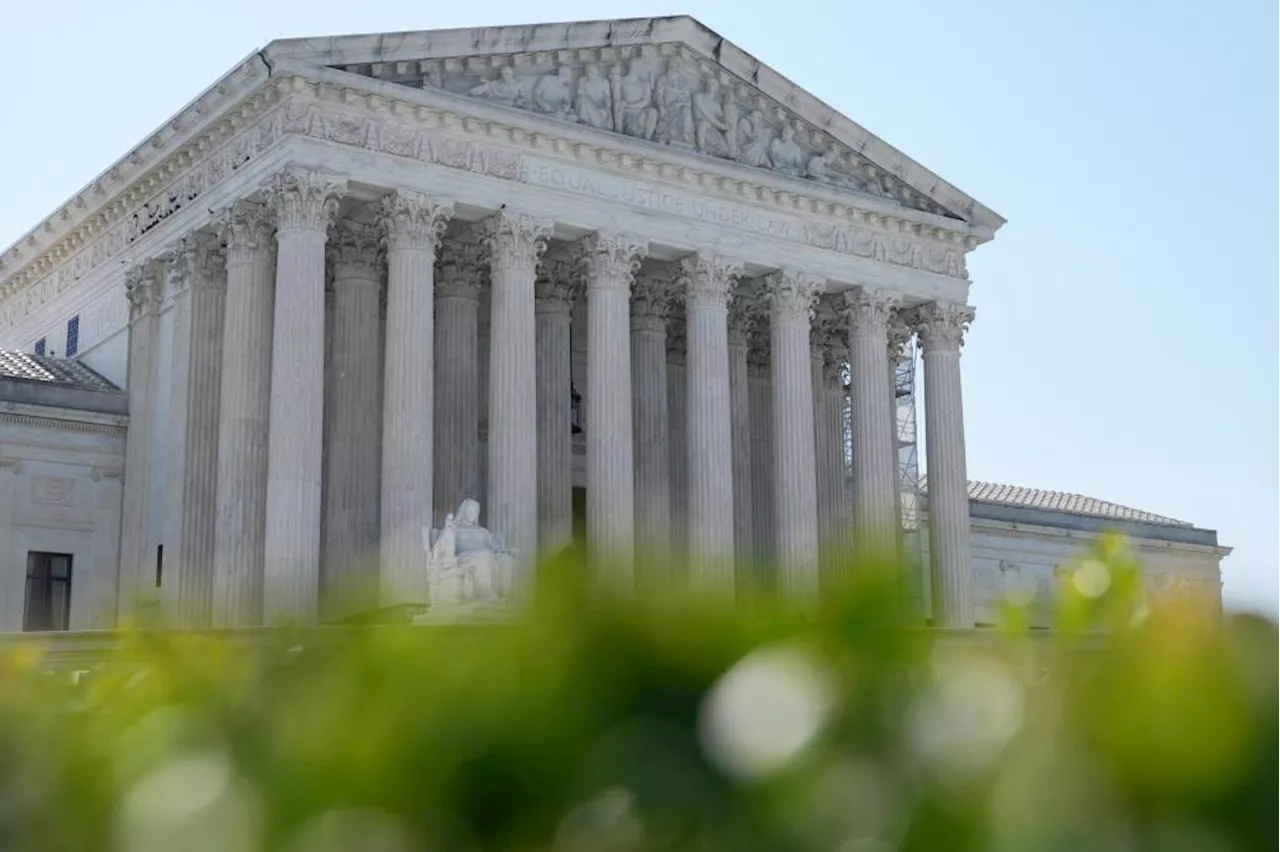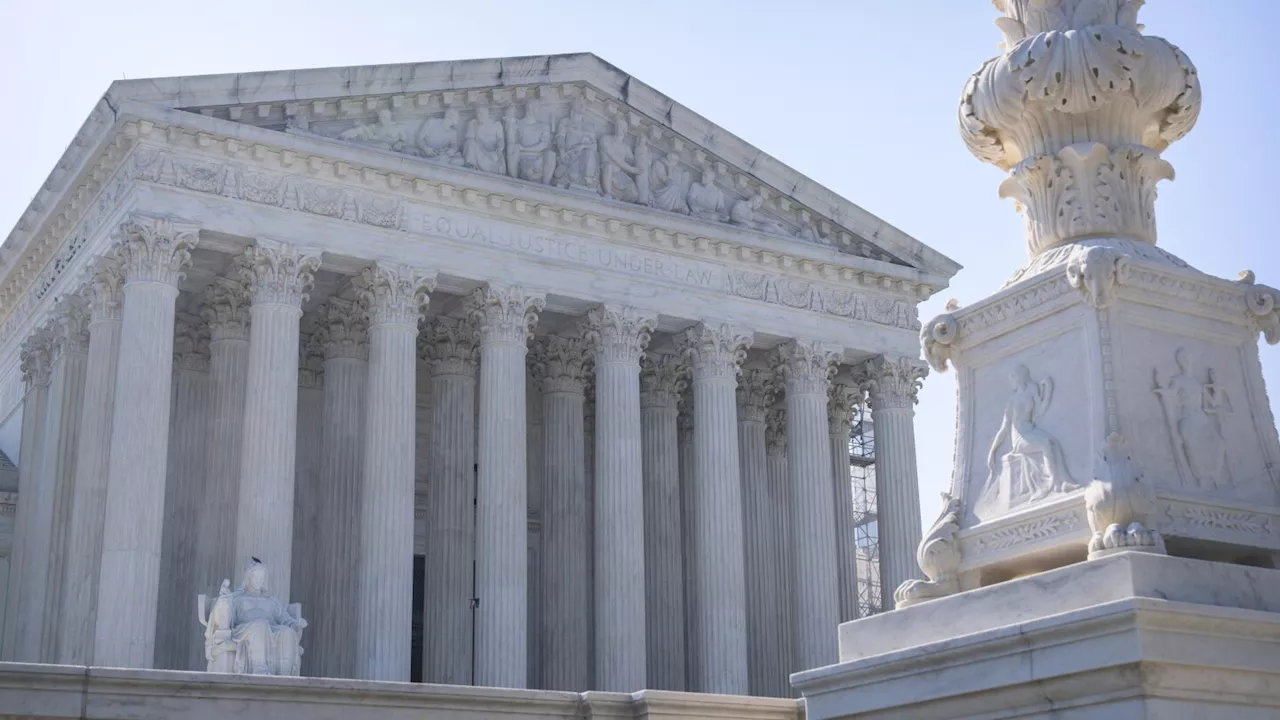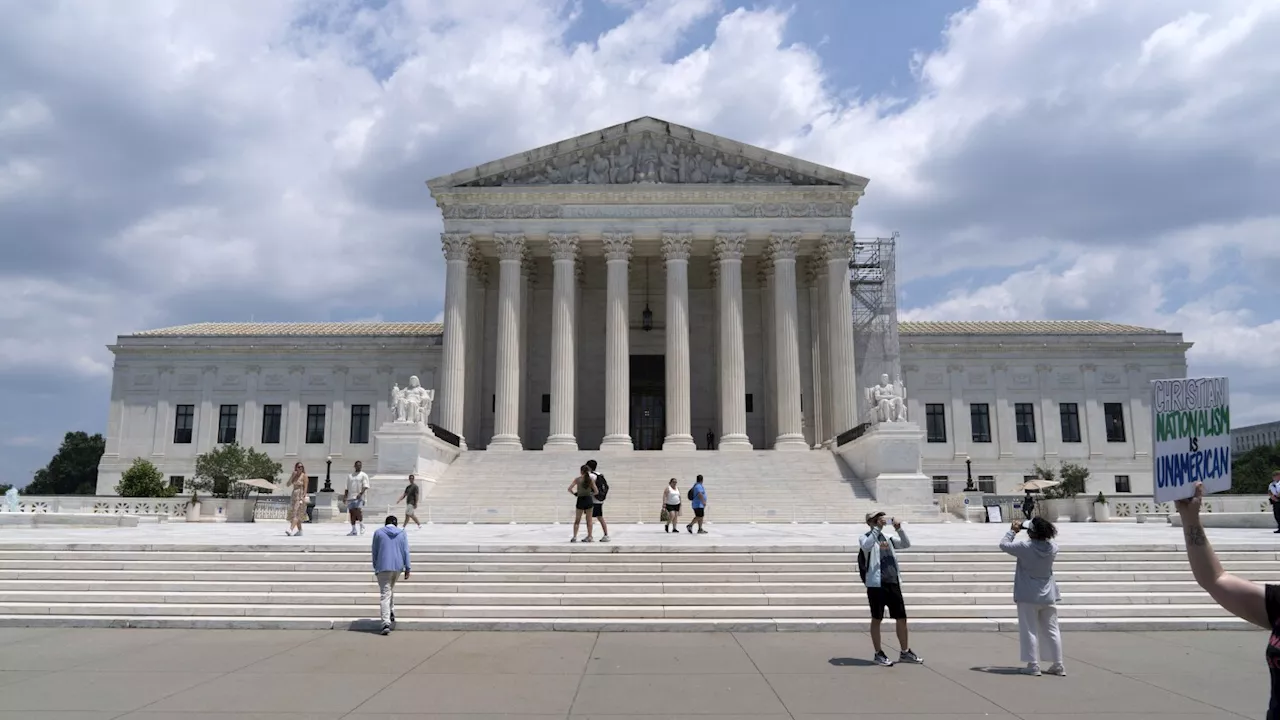The Supreme Court has ruled against a California woman who said her rights were violated after federal officials refused to allow her husband into the country, in part, because of the way his tattoos were interpreted.
woman who said her rights were violated after federal officials refused to allow her husband into the country, in part, because of the way his tattoos were interpreted.
While a citizen “certainly has a fundamental right to marriage” Barrett said, “it is a fallacy to leap from that premise to the conclusion that United States citizens have a fundamental right that can limit how Congress exercises the nation’s sovereign power to admit or exclude foreigners.” The couple started the process of getting an immigrant visa after they married in 2010. Luis Asencio-Cordero, who had been living in the U.S. without legal status, had to travel to the consulate in San Salvador to complete the process.
The State Department would not give a more specific reason, but after filing a lawsuit they learned the refusal was based, in part, on a consular officer’s determination that his tattoos likely meant he was associated with the gang MS-13.
Courts Womens Rights California State Government General News U.S. Supreme Court CA State Wire Government And Politics N W U.S. News Supreme Court Of The United States Immigration Tattoos And Piercings Washington News Politics U.S. News
United States Latest News, United States Headlines
Similar News:You can also read news stories similar to this one that we have collected from other news sources.
 The Supreme Court rules against California woman whose husband was denied entry to USThe Supreme Court has ruled against a California woman who said her rights were violated after federal officials refused to allow her husband into the country, in part, because of the way his tattoos were interpreted.
The Supreme Court rules against California woman whose husband was denied entry to USThe Supreme Court has ruled against a California woman who said her rights were violated after federal officials refused to allow her husband into the country, in part, because of the way his tattoos were interpreted.
Read more »
 Supreme Court upholds California woman's drug smuggling conviction that leaned on expert's opinionThe Supreme Court on Thursday upheld a California woman's drug smuggling conviction that was based in part on an expert's testimony that criminal gangs rarely use 'blind mules' to move drugs across the southern border.
Supreme Court upholds California woman's drug smuggling conviction that leaned on expert's opinionThe Supreme Court on Thursday upheld a California woman's drug smuggling conviction that was based in part on an expert's testimony that criminal gangs rarely use 'blind mules' to move drugs across the southern border.
Read more »
 Supreme Court upholds meth conviction of California woman who claimed she was a ‘blind mule’Defense attorneys argued that a Homeland Security agent’s testimony broke a rule of evidence that expert witnesses cannot give opinions on a defendant’s mental state. The court did not agree.
Supreme Court upholds meth conviction of California woman who claimed she was a ‘blind mule’Defense attorneys argued that a Homeland Security agent’s testimony broke a rule of evidence that expert witnesses cannot give opinions on a defendant’s mental state. The court did not agree.
Read more »
 UC Berkeley can build student housing at historic People's Park, California Supreme Court rulesUC Berkeley can build student housing at historic People's Park, California Supreme Court rules
UC Berkeley can build student housing at historic People's Park, California Supreme Court rulesUC Berkeley can build student housing at historic People's Park, California Supreme Court rules
Read more »
 Supreme Court rules California man can't trademark 'Trump too small'The Supreme Court has ruled against a man who wants to trademark the suggestive phrase “Trump too small.”.
Supreme Court rules California man can't trademark 'Trump too small'The Supreme Court has ruled against a man who wants to trademark the suggestive phrase “Trump too small.”.
Read more »
 Supreme Court rules California man can't trademark 'Trump too small'The Supreme Court has ruled against a man who wants to trademark the suggestive phrase “Trump too small.” The justices on Thursday upheld the government’s decision to deny a trademark to Steve Elster, a California man seeking exclusive use of the phrase on T-shirts and potentially other merchandise.
Supreme Court rules California man can't trademark 'Trump too small'The Supreme Court has ruled against a man who wants to trademark the suggestive phrase “Trump too small.” The justices on Thursday upheld the government’s decision to deny a trademark to Steve Elster, a California man seeking exclusive use of the phrase on T-shirts and potentially other merchandise.
Read more »
